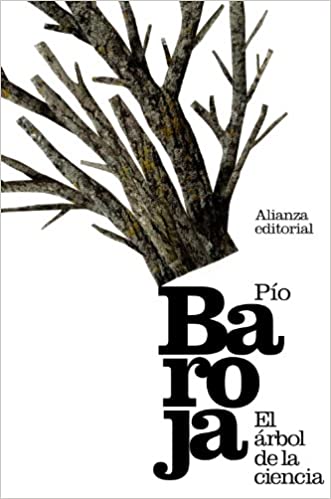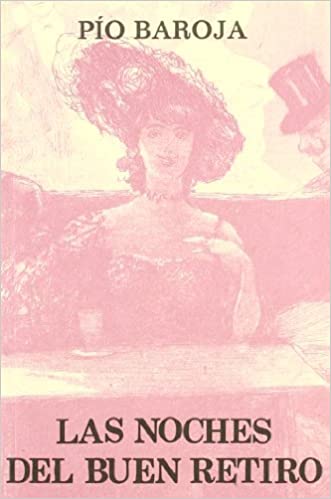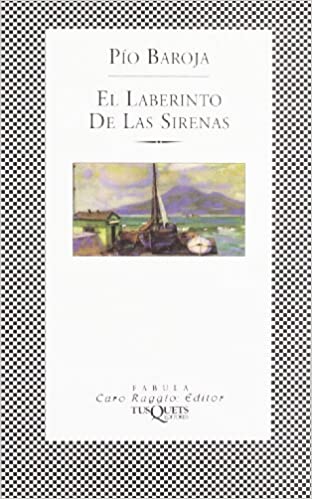When I read The Tree of Knowledge I had the feeling of having found the reasons that lead someone to want to be a doctor. Pio Baroja it was, before redirecting his life towards letters. And in that, in his lyrics, there is a perfect communion with his centific soul, the one that seeks to dissect the physical, up to a point where only literature can find what remains behind the organic and the tangible.
And what I found in The science tree it continues in many of his novels. Baroja's vital coincidence with the tragic national circumstances, with the loss of the last embers of imperial splendor, accompanied many of his novels, as happened with many of his colleagues from the Generation of 98.
It is true that I have never been much to respect the official labels. But the fatalism in the narrative of almost all the contemporaries of this generation is evident.
Y Losers, defeat as a vital foundation always end up with the most intense personal stories. When everything is soaked in that idea of the tragic as lack of foundation to live, the usual themes about love, heartbreak, guilt, loss and absences become authentically suffocating, as something typical of the reader.
Best of all, this type of literature is also partly redemptive, relieving, like a placebo for the reader who is aware of the disenchantment that the passage of time entails. Resilience in the narrated example, crude realism to enjoy to a greater extent the happiness of the small things made transcendental ...
3 recommended novels by Pio Baroja
The science tree
The world is against Andrés Hurtado. Everything that happens is beyond your control. He, who longed for ancestral answers in his medical studies, only ends up finding nothingness, emptiness.
Frustrated and disenchanted, Andrés wanders the world, with a broken will and a vague hope of randomly finding himself, delivered as he is to the doom of nihilism.
The brightness of a woman's eyes, from which innocence and hope seem to flow, end up being her only mirror in which to reflect a glimpse of what Andrés wanted to be.
Synopsis: Work in which the novelist's narrative technique, focused on the uninterrupted succession of events, the abundance of secondary characters, the skillful articulation of critical situations, the descriptive impressionism, the rapid drawing of characters, reaches its greatest effectiveness.
As well as the one in which, in Azorín's words, the spirit of Baroja is found "better than in any other book." It is the third novel in the La Raza trilogy. It narrates the life of Andrés Hurtado from the beginning of his medical studies.
The slightest hint of happiness appears in his vulgar existence: a sour faculty, an unloving family, and ungenerous friends. His own profession helps him to hate men more, and only with Lulú, a daring and tender girl, does Andrés find some happiness.
The nights of the good retirement
A worn out bohemian passes through this work, a melancholy for the times of youth that was diluted between fiery canned conversations between canteens and empty streets of Madrid at the end of the XNUMXth century.
The night of Madrid, an alternative world in the light of day and conventions, where all that contradictory being ends up coming in search of their shadows and their demons.
Synopsis: A very vivid evocation, nostalgic but no less ironic, of Madrid at the end of the century, the city of his youth. Through the small gardens of the same name, where the locals from Madrid used to gather to walk, chat and listen to music, a motley gallery of types passes: politicians, writers, comedians, businessmen, priests, usurers, beggars, ladies of rank, children of the bourgeoisie, women of bad life, people of the underworld ...
Among them is the protagonist, Jaime Thierry (alter ego of Pío Baroja himself, and of young Maeztu), a Spaniard of foreign blood, fiery in temperament, who aspires to make a literary name at court. Thierry will have to fight not only against the threats of the literary and journalistic world, but also against social conventions, which, among other things, prevent him from having a natural and satisfactory relationship with women.
In the vehemence and romanticism of his ambition, Baroja pays tribute both to the youth and to the city of that time and its many faces.
The labyrinth of mermaids
Second novel in his series El mar. In addition to his somewhat tormenting themes about existence, Pío Baroja also gave himself on occasions to more dynamic trams in terms of themes that intertwine to energize the narrative set.
Nothing better for this than to escape the literary conditions of the country to open up to other places and other inspirations, respecting, yes, its particular plethora of characters as bizarre as they are rich in their human quality.
Synopsis: In the hectic Naples of the early XNUMXth century, Captain Andía meets the already elderly Marchioness of Roccanera, a Neapolitan lady whose past seems to hide painful memories; Andía also discovers the handwritten autobiography of the Basque sailor Juan Galardi, in which he tells how, after suffering a bitter sentimental disappointment, he begins to work as administrator of a farm owned by the Marquise de Roccanera, a place whose labyrinthine recesses are so conducive to furtive love affairs. like the stories of ghosts and ghosts.



